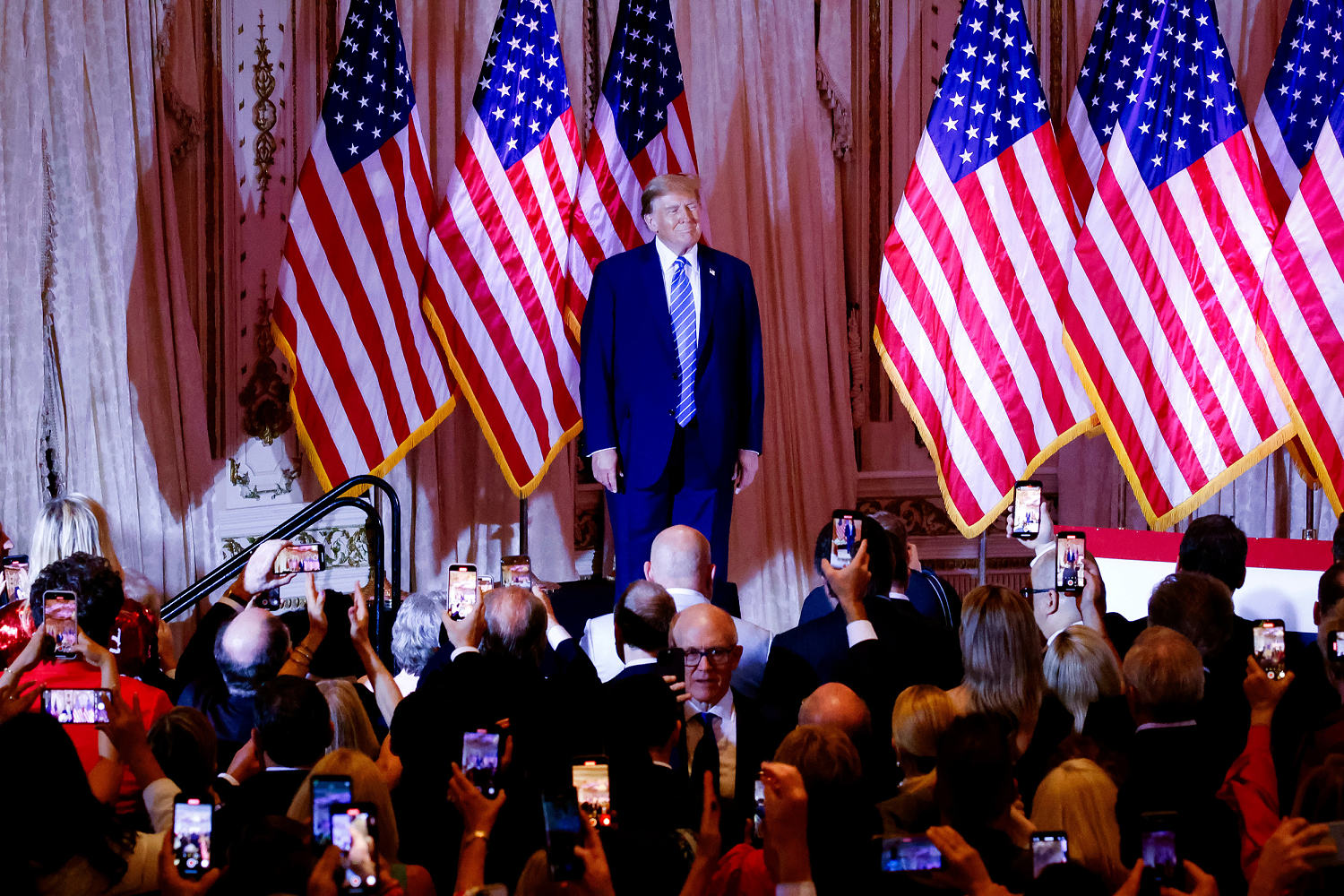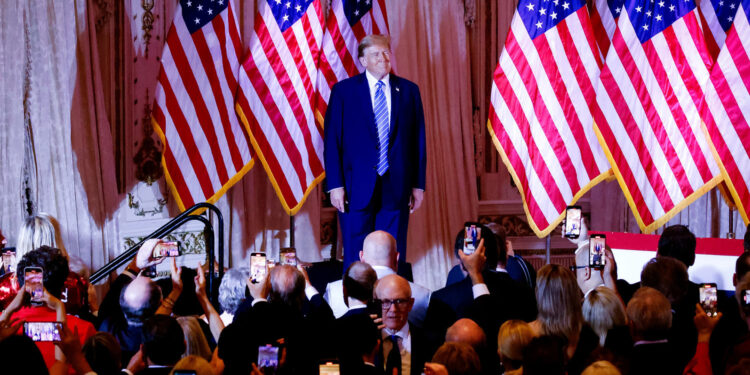
Attorneys for Donald Trump on Friday asked the federal judge presiding over the former president’s classified documents case to halt court proceedings and allow for consideration of how the Supreme Court’s presidential immunity ruling impacts the criminal charges.
“The Court should stay all other proceedings in the case” while Trump presents his arguments for why the bulk of the case should be dismissed because of the recent Supreme Court decision, Trump’s attorneys told U.S. District Judge Aileen Cannon in their filing.
Trump filed his initial motion to dismiss the indictment on the grounds of presidential immunity in February, arguing the “charges stem directly from official acts by President Trump while in office.”
“Specifically, President Trump is immune from prosecution on Counts 1 through 32 because the charges turn on his alleged decision to designate records as personal under the Presidential Records Act and to cause the records to be moved from the White House to Mar-a-Lago. As alleged in the Superseding Indictment, President Trump made this decision while he was still in office. The alleged decision was an official act, and as such is subject to presidential immunity,” that filing said.
Trump was indicted on 40 counts. He has pleaded not guilty to all charges.
The Supreme Court this week handed Trump a major victory by ruling that presidents have immunity for official actions while in office. The 6-3 decision on ideological lines came in response to Trump’s challenge to special counsel Jack Smith’s election interference case against him in Washington, D.C.
“The President is not above the law,” Chief Justice John Roberts wrote in Monday’s ruling. “But Congress may not criminalize the President’s conduct in carrying out the responsibilities of the Executive Branch under the Constitution.”
Trump’s court filing on Friday referenced a line from the decision where Roberts wrote that “[q]uestions about whether the President may be held liable for particular actions, consistent with the separation of powers, must be addressed at the outset of a proceeding.”
Trump’s attorneys argued that as a result of that language, Cannon — a Trump nominee who had already indefinitely delayed the trial while she considers other arguments — should put the case on hold until the immunity questions are resolved.
The filing by Trump’s team also used Justice Clarence Thomas’ concurring opinion to bolster another of its motions, which argues that Smith was not properly appointed special counsel. Thomas had written, “If this unprecedented prosecution is to proceed, it must be conducted by someone duly authorized to do so by the American people.”
The concurrence is not legally binding on Cannon.
The Justice Department did not immediately respond to a request for comment on Friday’s filing by Trump’s attorneys.
In a court filing earlier this year, Smith’s office called Trump’s immunity motion “frivolous.” It said the indictment “does not charge Trump for any acts that he undertook as President, let alone an official presidential act. The Superseding Indictment alleges that even though Trump lost the authority to possess documents containing national defense information after his term as President ended, he nonetheless willfully retained such documents after his Presidency, including by conspiring with others to conceal his ongoing, unlawful possession from his own attorneys, federal investigators, and the grand jury. Every criminal charge in the Superseding Indictment is based upon conduct in which Trump engaged after he left office.”
Trump’s lawyers last week successfully used the Supreme Court ruling to delay his sentencing on 34 felony counts of falsifying business records in New York, since some of the evidence at trial had to do with his conduct while he was president. Judge Juan Merchan postponed the original July 11 sentencing until September while he considers Trump’s arguments.







